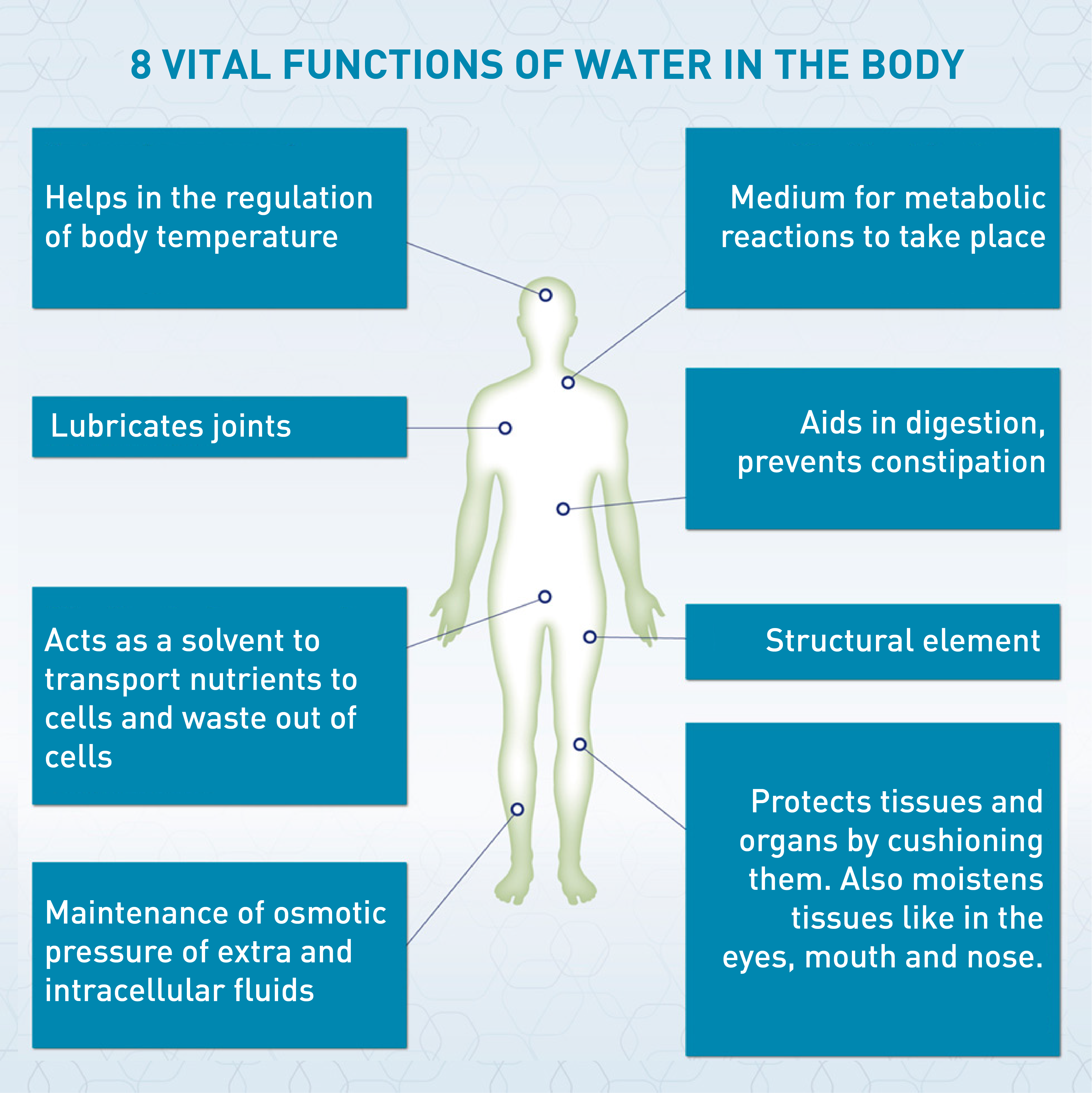Difficulty swallowing is a symptom that occurs mostly in frail elderly or people with neurological diseases such as Alzheimer's disease, Parkinson's disease, stroke and in cancer patients. In these patients, the risk of dehydration is high. The main reason for this is because people with dysphagia have insufficient fluid intake and an excessive loss of fluids because of sweating or diarrhea.
The insufficient fluid intake in people with dysphagia can be explained by:
- The fear of choking due to the persistent cough that occurs during or after swallowing liquids.
- Drooling due to difficulty in closing the lips.
- Decreased thirst sensation, which is responsible for regulating the need for water.
- Physical disabilities that hinder access to fluids.
- Mental disabilities that impair the ability to recognize the need for fluid intake.
- Side effects of some drugs that cause a decrease in thirst.
- Change of taste in beverages thickened using start-based liquid thickeners, which reduces appetite for water.
The result of having insufficient water intake directly affect the person's swallowing capacity- where production of saliva is lowered. This not only hinders bolus formation during eating, but also increases the likelihood of infections. It is important to break this vicious cycle.
Other factors such as urinary incontinence, fever, very hot environments or climates, vomiting and diarrhea can also contribute to excessive fluid loss and put the patient's health at risk, in addition to aggravating difficulty swallowing.

Recommended bibliography:
- Report on food consumption in Spain, 2015. Ministry of Agriculture, Food and Environment, May 2016.
- Hodgkinson B, Evans D, Wood J. Maintaining oral hydration in older adults: a systematic review. Int j Nurs Pract 2003; 9 (3): S19-28.
- Morley J. Water, water everywhere and not a drop to drink. J Gerontol A Biol Sci Med Sci 2000; 55 (/): M359-6